NEWS: Lawmakers boost public education, but shortfall still exists
NEWS BRIEFS: Gas tax to increase, child welfare, vetoes, more
COMMENTARY, Brack: Age, Trump will drive fall gubernatorial election
SPOTLIGHT: United Way Association of South Carolina
MY TURN, Knapp: GOP move on offshore drilling is money “shakedown”
FEEDBACK: Trump may be a pig, but he’ll get in slop
MYSTERY PHOTO: A building with a classic design
S.C. ENCYCLOPEDIA: Elmore v. Rice
NEWS
Lawmakers boost public education, but shortfall still exists
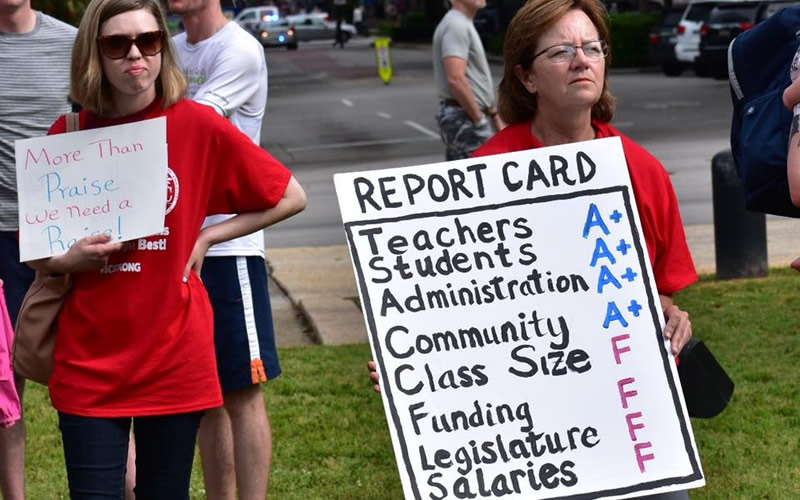
By Lindsay Street, Statehouse correspondent | It’s hard to get excited about 1 percent of anything, but education advocates are calling a 1-percent pay raise for S.C. teachers a step — albeit a small step — in the right direction.
S.C. Sen. Brad Hutto, D-Orangeburg, called South Carolina’s $8 billion spending plan passed by the legislature this week “a good education budget.”
“It’s the best we’ve had in years, but it still doesn’t get us where we need to be,” Hutto said.
With the state chronically low on every education list and districts struggling with teacher shortages, education is getting more attention and more money. This week, the annual KIDS COUNT child welfare report found 74 percent of S.C. eighth graders are not proficient in math and 71 percent of S.C. fourth graders are not proficient in reading. The state was ranked 41st in education. Other studies rank it lower.

“We don’t have our heads in the sand. We see what’s happening,” Hutto said. He cited teacher rallies across the country as they seek higher pay and the teacher shortage. “We need to do better.”
In the 2018-19 budget for K-12 education, lawmakers also added $56 million to last year’s base student cost, added $14 million toward new school buses (of which $3 million is recurring), raised base teacher pay to $32,000 from $30,113, fully funded teachers’ annual experience salary increase to 2 percent — a move typically done every year and separate from the 1 percent cost-of-living increase — annual experience salary increase, set aside $2 million for school resource officers and included $10 million in lottery funds for school safety grants.
S.C. Education Association President Bernadette Hampton said she sees a trend starting to emerge. For the second time in recent years, S.C. lawmakers have offered across-the-board raises for teachers. In 2016, it was a 2 percent raise. Now, it’s a 1 percent raise and a $60 per-pupil increase toward base-student cost — which districts can use to pay teachers more.
More money but still a shortfall
In the current 2017-18 fiscal year, the state spent $2,425 per student to fund public education, an increase of $75 per student over the previous year’s $2,350 base student cost. It’s another year in the trend of increasing this funding stream, which is still millions below state mandated levels.
At an additional $60 per student, there is still a funding shortfall of $474 per student under the state-mandated education funding formula. During the 2018-19 school year, Statehouse staffers are projecting there to be 727,513 students in public schools, which means schools statewide are $345 million short of what the law requires.

Hampton said more is needed, however. She wants to see starting teacher pay at $40,000 per year.
“We were hoping they would continue and put a plan in place to get us to there,” Hampton said. “We really wish they would be more intentional and more consistent.”
More changes in the future?
While much of the House budget debate this week was focused on state money going toward abortion-providing clinics for non-abortion procedures and medications, several legislators spoke about teacher pay, including S.C. Rep. James Smith, D-Richland. Smith is also the Democratic candidate for governor.
On the floor, he lamented more was not done for education in this year’s budget, but promised changes on the horizon.
“There will come a time when we have an agenda for public education again, and we’re doing things to recruit teachers again,” he said.
S.C. Rep. Wendell Gilliard, D-Charleston, said teachers in the state deserve a 15-percent pay increase.
“But I’d rather pass something than nothing,” he concluded. He added a quote from former President Barack Obama: “Don’t boo, vote.”
Hampton recently co-authored a letter to legislators urging them to adopt a 10-year plan to pay teachers and public employees better. She said she wants to see more consistency and commitment from the General Assembly.
Hutto said the tides have shifted and there’s commitment already among lawmakers.
“South Carolina is a growing and prospering state,” he said. “Education has got to be a priority.”
- Have a comment? Send to: feedback@statehousereport.com
NEWS BRIEFS
Gas tax to increase, child welfare, vetoes, more
By Lindsay Street, Statehouse correspondent | Motorists in South Carolina — which has the lowest average price per gallon of gasoline — will see an increase in their price per gallon of gasoline beginning July 1.
![]() South Carolina passed a big infrastructure bill in 2017 that incrementally increases the state’s tax on gasoline from 18 cents per gallon to 28.75 cents per gallon by 2022. Starting July 1, the state will charge 20 cents per gallon to help pay for infrastructure improvement and maintenance around South Carolina.
South Carolina passed a big infrastructure bill in 2017 that incrementally increases the state’s tax on gasoline from 18 cents per gallon to 28.75 cents per gallon by 2022. Starting July 1, the state will charge 20 cents per gallon to help pay for infrastructure improvement and maintenance around South Carolina.
But don’t feel left out: Oklahoma and Tennessee will also experience a tax hike for fuel. And our gas receipts will still be among the cheapest in the nation.
In other news:
Child welfare improves. South Carolina has achieved its highest-ever ranking from an annual report that looks at child welfare. The Annie E. Casey Foundation’s KIDS COUNT report listed South Carolina at No. 38, up one spot from last year. Several declining metrics helped the state improve on child welfare. Those include declining rates of the number of uninsured children, number of teen births, percentage of students not graduating on time and number of children living in a single-parent home. Read more about the report here.
Veto overrides. The General Assembly got enough of its members on the same page this week to override two gubernatorial vetoes at the end of its 2017-2018 session. One of those laws now cuts South Carolina Electric and Gas customer rates by 15 percent. Gov. Henry McMaster followed through on his pledged to veto any bill that did not completely rollback the full 18 percent rate increase for SCE&G customers that pays for the defunct $9 billion nuclear reactor project. The House and Senate differed at first on how much to roll back rates: the House agreed with McMaster and the Senate wanted only 13 percent cut. But the bodies compromised this week and then overrode McMaster’s veto. In the other override, a new law now provides leniency to those convicted of low-level, nonviolent crimes. The law allows for expungement of records in a move aimed at helping boost the state’s labor pool by tapping into those released from prison. McMaster vetoed the bill saying employers have a right to know a potential employee’s past, but the General Assembly had the votes to make the bill law.

Lackey to retire. AT&T South Carolina President Pamela Lackey will retire June 30 after decades in the field. Lackey is a member of the State Ports Authority and has been a major business leader in South Carolina for years.
“I have been privileged to work on communications policy issues for much of my career and it has been exciting to see how South Carolina policymakers have consistently understood how their decisions can help move our state forward economically,” Lackey told Statehouse Report.

Ervin named new Public Service Commissioner. Former circuit court judge Tom Ervin has been sworn in as S.C. Public Service Commissioner for Greenville and Spartanburg counties. Ervin, who ran for governor in 2014, was elected to the four-year post by the General Assembly. The Public Service Commission regulates utilities in the state. It is expected to be in the limelight in the months ahead in dealing with the Summer nuclear fiasco.
- Have a comment? Send to: feedback@statehousereport.com
BRACK: Age, Trump will drive fall gubernatorial election

By Andy Brack, editor and publisher | In more ways than one, South Carolina’s fall gubernatorial election will hinge on age.
 Republican Gov. Henry McMaster, who nabbed a primary runoff victory in an election much closer than expected, is 71. His Democratic opponent, longtime state Rep. James Smith of Columbia, is a generation younger at age 50.
Republican Gov. Henry McMaster, who nabbed a primary runoff victory in an election much closer than expected, is 71. His Democratic opponent, longtime state Rep. James Smith of Columbia, is a generation younger at age 50.
In the months ahead, expect to hear both talking about experienced leadership, but in different ways.
McMaster will focus on South Carolina’s general successes and how it’s smart to keep the state’s coach when the state has low unemployment. Smith, who will benefit from the bruising done to McMaster by four GOP primary opponents, will question whether the state as a whole is really doing as well for everyone. He’ll likely make a case that it is time to change the coach to try new solutions, not keep someone who has been fighting the same ideological battles for decades.
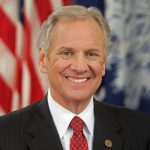
“It’s in McMaster’s best interest to get James to focus on individual issues,” observed former Democratic state Sen. Phil Leventis of Sumter. “It’s in James’s best interest to try to focus on basically the almost two-decade rule of [Mark] Sanford, [Nikki] Haley and now McMaster that resulted in no measurable progress for the vast majority of people in South Carolina.”
Leventis said it is easy for the incumbent to point to job-laden successes like Boeing and Volvo during the campaign.
“Those are great – we’re happy to have them — but those are the exceptions, not the norms,” Leventis noted, adding Republican leadership had not effectively dealt with the state’s huge challenges in education, health care and poverty
Another observer suggested Smith would try to appeal to younger and independent voters by focusing on a new generation of ethical leadership with experience to get things done by working across the aisle – and without getting as hung up on old-timey ideology.
But the election could boil down to something much simpler than age depending on what’s happening nationally. It could become a referendum on President Donald Trump. If Trump, the most Teflon of presidents, weathers continuing scandals like a duck repels water, then McMaster’s ongoing reminders of his close ties to the president might pay off. But if Trump starts sinking under the weight of a special counsel’s enduring probe into Russian fiddling with the 2016 elections, McMaster’s ties to the president could turn sour at the polls.
“There was no policy discussion of any legitimacy n the Republican primary,” said GOP observer Chip Felkel of Greenville, who thought the linchpin for the eventual winner rested with Trump’s fate. “It was all about kissing his ring. The Democrats seemed to be more interested in policy. “
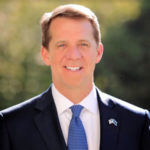
Felkel also said Trump’s tariffs on foreign goods could come home to roost by hurting South Carolina jobs.
“Trump’s policies are eventually going to affect South Carolina employment numbers when it comes to tariffs and the automotive and airline industries. I know Henry is Trump’s guy, but how is that helping South Carolina?”
Three other issues may drive voters in November:
Energy. McMaster and Smith agree a just-passed legislative rate cut for SCE&G ratepayers wasn’t enough because continues to subsidize the failed V.C. Summer nuclear project. Smith may be able to capitalize on the issue by saying McMaster was part of the leadership that led to the debacle. Although Smith was a member of the legislature then, he was serving in the military in Afghanistan when the enabling legislation passed that caused the mess.
Corruption. A whiff of ongoing scandal still scents Columbia’s air. McMaster got beaten up in opponents’ ads in the primary that tied him to a campaign consultant he used for years who got caught in the investigation. This story line could validate Smith’s assertion that ethical leadership is needed and might appeal to anyone tired of good old boys in Columbia.
Health care. During the primary, Smith telegraphed a big campaign theme would be access to affordable health care – something that eludes thousands of South Carolina, in part, because the state’s GOP leaders refused to accept billions of dollars in federal money to expand Medicaid services. Recent ideological GOP attacks on abortion providers also could backfire.
- Have a comment? Send to: feedback@statehousereport.com.
SPOTLIGHT
SPOTLIGHT: United Way Association of South Carolina
 The public spiritedness of our underwriters allows us to bring Statehouse Report to you at no cost. This week, we shine a spotlight on the United Way Association of South Carolina. It is the common voice of the 29 independent, locally-government United Ways in the Palmetto State that work together to create long-lasting opportunities for everyone to have the good life. The organizations focus on education to help children and youths achieve their potential so they can get a stable job; income to promote financial stability and independence; and improving people’s health.
The public spiritedness of our underwriters allows us to bring Statehouse Report to you at no cost. This week, we shine a spotlight on the United Way Association of South Carolina. It is the common voice of the 29 independent, locally-government United Ways in the Palmetto State that work together to create long-lasting opportunities for everyone to have the good life. The organizations focus on education to help children and youths achieve their potential so they can get a stable job; income to promote financial stability and independence; and improving people’s health.
Advancing the common good is about helping one person at a time and about changing systems to help all of us. The associations believes we all win when a child succeeds in school, when families are financially stable, and when people are healthy. The organization’s goal is to create long-lasting changes by addressing the underlying causes of these problems. “Living United” means being a part of the change. It takes everyone in the community working together to create a brighter future. Give. Advocate. Volunteer. LIVE UNITED.
- More: http://www.uwasc.org
KNAPP: GOP move on offshore drilling is money “shakedown”

By Frank Knapp Jr., special to Statehouse Report | President Trump has defended his desire to open all the country’s federal offshore waters to drilling for oil by saying that the United State must have energy dominance over all other nations.

But a recent Republican proposal in the U.S. House Committee on Natural Resources would allow states to opt out of offshore drilling by paying “a lost production fee” to the federal government for depriving American taxpayers the revenue from oil drilling leases, according to Committee Chair Paul Gosar, R-Arizona.
At the committee’s June 14 hearing on this proposal. Mayor Ben Cahoon of Nags Head, N.C., exposed the contradiction between Trump’s justification for more offshore oil drilling and the GOP proposal.
“If we are going to have an energy policy and we are going to decide that we need the oil, why are we letting states then take some of that oil back off the table in exchange for a payment?” Cahoon asked.
Why indeed?
The United States either needs more oil or it doesn’t. If it really needs it (we don’t), then South Carolina and other Atlantic coast states shouldn’t be able to pay a ransom to opt out to protect their tourism, commercial fishing and recreation economies.
However, we shouldn’t be surprised at this turn of events.
The man who will make the decision on expanding oil exploration and drilling in new offshore areas, Secretary of the Interior Ryan Zinke, has been honest about the purpose of more offshore drilling from the beginning of Administration’s proposal.
A year ago, Zinke admitted that his federal agency, which is responsible for the nation’s parks, needs more money.
“In 2008, the Department of Interior made about $18 billion a year in offshore (revenue) alone,” Zinke told the Senate Energy and Natural Resources Committee in explaining the Administration’s 2018 budget request.
“Last year our revenue was $2.6 billion. That’s a drop of $15.5 billion a year in revenue. So, when we talk about infrastructure, the parks are about $11.5 billion behind which represents 73 percent of our total gap in maintenance and repair,” he said.
That’s why he was focusing on revenue, Zinke said.
The Republican proposal to “shakedown” coastal states over offshore drilling confirms the real purpose of the Administration’s intent to turn our nation’s oceans over to the petroleum industry.
It’s all about the money.
Knapp is the president and CEO of the South Carolina Small Business Chamber of Commerce.
- Have a comment? Send it to: feedback@statehousereport.com.
FEEDBACK
FEEDBACK: Trump may be a pig, but he’ll get down in the slop
To the editor:
![]() I just finished reading your essay “City on a Hill,” and I’d like to offer a thought or two.
I just finished reading your essay “City on a Hill,” and I’d like to offer a thought or two.
I get the impression that you’re not much of a Donald Trump fan. I wasn’t either, but I’ve warmed up to him a bit. Here’s why.
Trump is constantly being painted in the liberal press as the problem. I think he is more of a symptom. We’ve been lied to by so many politicians since, well, the beginning of time that politics have become a laughing stock. George Bush raised taxes. Bill Clinton lied. George W. Bush put us on a spending spree to punish someone for 9/11 and to export our way of life to an unreceptive part of the world. Obama called that spending un-American, then doubled it. That’s just the presidents.
Our borders are being overrun by people who, yes, want a better life, but are untrained to participate in our society and don’t really want to join it, but rather want to establish enclaves of their home culture here. There are people who have vowed to destroy us, yet we are told we must allow them into the country because it’s the American thing to do. Meanwhile, we watch how Europe falls apart, changed for the worse probably forever by doing the same thing. Our educational system is more interested in making sure everyone knows Johnny can have two dads rather than learning the history of the nation, how to read, how to calculate or how to think. Our educators want to teach them what to think.
Enter Donald Trump — a true product of the media-hyping, celebrity-is-all-that -matters, ratings-oriented world we’ve created. I consider myself to be a fiscal conservative/social liberal (OK, maybe moderate), and I was not a Trump fan. I voted for Cruz in the primary, and Gary Johnson in the general, but if I was in Ohio ( my home state), North Carolina, Michigan (God forbid), Wisconsin or Pennsylvania. I’d have held my nose and voted for Donald. Hillary Clinton has always been an evil, conniving, dirty-dealing hypocrite, and would have taken the country to even greater depths. I look at Trump, and I see a pig who is willing to get down in the slop and push back against all the other pigs who have occupied office for far too long.
The only way to save the nation, IMHO, is strict and short-term limits, but for the time being I’ll settle for the Donald, and watch him drive all the entrenched politicians and media divas nuts. It’s kind of refreshing.
— Phil Tackett, Summerville, S.C.
McCain on American exceptionalism
[Editor’s note: One reader sent a quote from U.S. Sen. John McCain’s “The Restless Wave) (page 81) as a response to Andy Brack’s June 22 commentary]
To the editor:
“What makes us exceptional? Our wealth, Our natural resources? Our military power, Our big bountiful country? No, our founding ideals and our fidelity to them at home and in our conduct in the world make us exceptional. ….Facing threats with confidence that our values make us stronger than our enemies. Acting as an example to other nations how free people defend their liberty without sacrificing the moral conviction upon which it is based, respect for the dignity possessed by all God’s children, even our enemies. This is what makes us the great nation we are.”
— William Heitsman, Darlington, S.C.
Send us your thoughts. We love hearing from our readers and encourage you to share your opinions. But you’ve got to provide us with contact information so we can verify your letters. Letters to the editor are published weekly. We reserve the right to edit for length and clarity. Comments are limited to 250 words or less. Please include your name and contact information.
- Send your letters or comments to: feedback@statehousereport.com
MYSTERY PHOTO
MYSTERY PHOTO: A building with a classic design
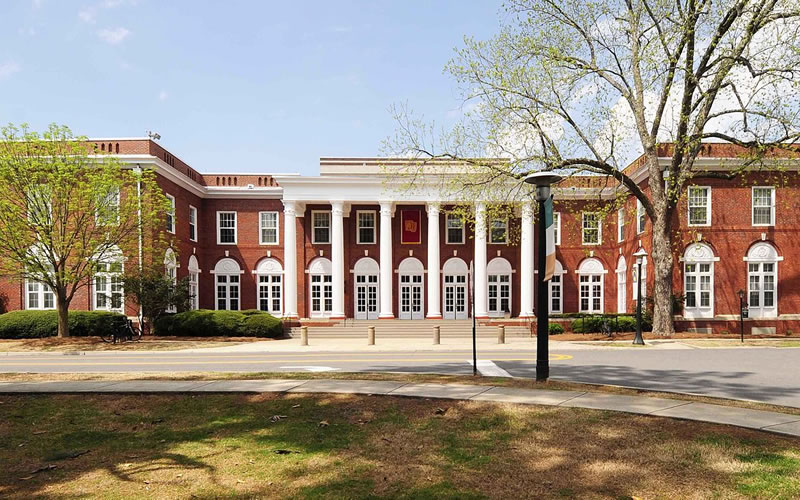
This old building has a magnificent presence, but where in South Carolina is it? Send your best guess – plus your name and hometown – to feedback@statehousereport.com. In the subject line, write: “Mystery Photo guess.” (If you don’t include your contact information, we can’t give you credit!)
Our previous Mystery Photo
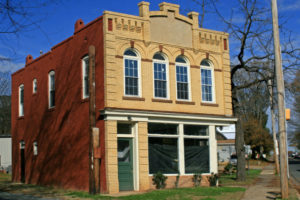 Our June 22 mystery showcased the Afro-American Insurance Company building in Rock Hill.
Our June 22 mystery showcased the Afro-American Insurance Company building in Rock Hill.
Interestingly, no South Carolinians identified the photo, which was snapped by Bill Segars of Hartsville. Congratulations to two Virginia sleuths: George Graf of Palmyra, Va.; and Dale Rhodes of Richmond, Va.
Graf provided some context: “According to nationalregister.sc.gov/York, the Afro-American Insurance Company Building was constructed about 1909 to house the local office of the Afro-American Insurance Company. This company, with offices in several southeastern states, was one of several insurance companies owned and operated by African Americans marketing to African American communities. The company’s building in Rock Hill became an impressive symbol of the aspirations for commercial success among many African American leaders. It also was evidence of the growing market for business and financial services within the emerging African American middle class.
“The building is the design of William W. Smith of Charlotte, an important African American designer and builder in the region. Because most buildings that historically housed African American businesses in Rock Hill have been destroyed through urban renewal programs, the Afro-American Insurance Company Building has added significance as perhaps the most important surviving example of a commercial building related to the African American community of the early twentieth century. It is a two-story commercial building of brick laid in common bond. The façade has a tan brick veneer, while the sides and rear are in red brick. The façade has brick quoining at the corners and a corbelled brick cornice and center parapet with recessed panel. Listed in the National Register June 10, 1992.”
Send us a mystery: If you have a photo that you believe will stump readers, send it along (but make sure to tell us what it is because it may stump us too!) Send to: feedback@statehousereport.com and mark it as a photo submission. Thanks.
S.C. ENCYCLOPEDIA
HISTORY: Elmore v. Rice
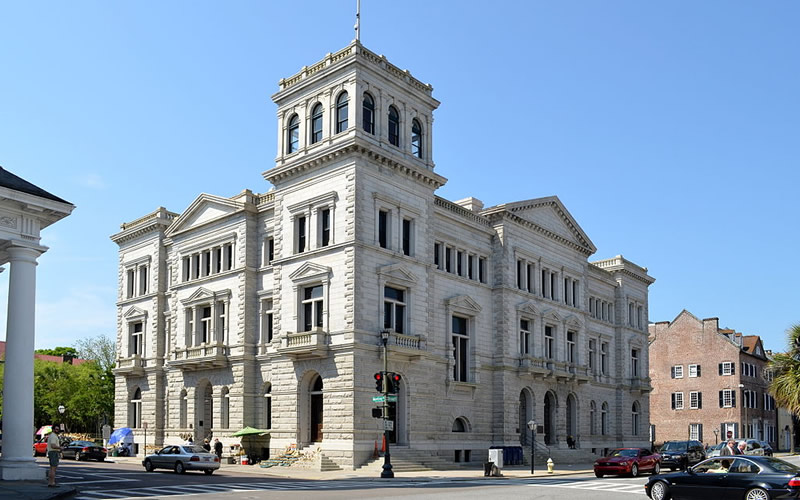
S.C. Encyclopedia | One month after the South Carolina General Assembly repealed all statutes related to party primaries in the state in order to maintain its white primary, African American leaders formed the Progressive Democratic Party for the purpose of challenging the white primary system. In 1946 George Elmore, an African American who was eligible to vote in general elections, was denied the right to vote in the Democratic Party primary in Richland County in which party nominees for the U.S. Senate, the U.S. House of Representatives, and state offices were chosen. Citing several provisions of the U.S. Constitution, Elmore claimed that his right to choose members of Congress had been violated because of his race. He also argued that his right to participate on an equal basis in state and federal elections had been denied, since the primaries controlled the choice of elected officials.
The case was heard by U.S. District Judge J. Waties Waring, a native Charlestonian. Waring noted that since 1900 every governor and member of the General Assembly and Congress elected in the general election had been the nominee of the state’s Democratic Party, which during the previous twenty-five years was the only party in South Carolina holding statewide primaries. He concluded that the repeal of all statutes and regulations in 1944 made no appreciable difference in the selection process of state officials and that the sole purpose of repealing the statutes and constitutional provisions was to prevent blacks from voting. Waring concluded that the state’s Democratic Party was acting for and on behalf of the citizens of South Carolina and that the party’s primary election was the only practical place where the voters could make their choices in selecting elected officials at the federal and state levels. He added the cutting comment that it was “time for South Carolina to rejoin the Union. It is time to fall in step with the other states and to adopt the American way of conducting elections.”
The response of the state’s Democratic Party Executive Committee was to require that everyone who voted in the party’s primary would have to take an oath stating that they would support the social, religious, and educational separation of the races. At least six local Democratic county committees, however, ignored the oath and began registering African American voters. In July 1948 Judge Waring’s court rejected the oath. Waring’s decisions were affirmed by the U.S. Court of Appeals for the Fourth Circuit. The U.S. Supreme Court refused to review the case. Democratic Party chair W. P. Baskin subsequently advised county chairs to enroll all constitutionally qualified electors on July 23, 1948. By the time of the August 1948 primary, some 35,000 African Americans were registered to vote and the white primary in South Carolina ceased to exist.
— Excerpted from an entry by William V. Moore. To read more about this or 2,000 other entries about South Carolina, check out The South Carolina Encyclopedia, published in 2006 by USC Press. (Information used by permission.)
ABOUT STATEHOUSE REPORT
Statehouse Report, founded in 2001 as a weekly legislative forecast that informs readers about what is going to happen in South Carolina politics and policy, is provided to you at no charge every Friday.
- Editor and publisher: Andy Brack, 843.670.3996
- Statehouse correspondent: Lindsay Street
More
- Mailing address: Send inquiries by mail to: P.O. Box 22261, Charleston, SC 29407
- Subscriptions are free: Click to subscribe.
- We hope you’ll keep receiving the great news and information from Statehouse Report, but if you need to unsubscribe, go to the bottom of the weekly email issue and follow the instructions.
© 2018, Statehouse Report. All rights reserved.


